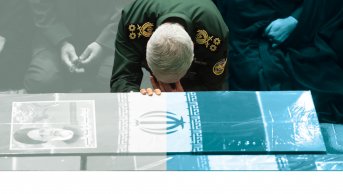Why is the Deal with Iran Good for Turkey?

The recent deal between Iran and the P5+1 (the five permanent members of the Security Council plus Germany) will likely augur well for Turkey. The reasons to feel optimistic seem to outpace the reasons to feel pessimist. First, that the crisis over Iran's nuclear ambitions appears to have somehow come to an end with the signing of a diplomatic accord is in tune with Turkey's stance that solutions to regional and global security problems should be first and foremost sought through peaceful diplomatic efforts. The deal also vindicates stillborn efforts by Turkey and Brazil back in May 2010 to make a similar breakthrough. Efforts to give diplomacy a chance are sorely needed in the post-Arab Spring Middle Eastern security environment. The deal also lines up with Turkey's once-cherished “zero problems with neighbors” foreign policy.
Second, the incorporation of Iran into the regional and international political environment as a legitimate and responsible party will likely help Turkey regain some of the ground that it lost in the immediate aftermath of the Arab Spring. The normalization or reset of Turkey's Middle Eastern policy will become much easier as Turkey and Iran find more common ground after the normalization of Iran's regional and international status. The likelihood of Turkey and Iran finding each other in opposing camps will likely decrease in the years to come. This is thanks in no small part to the fact that Turkey took a different stance than Israel and Saudi Arabia, which did not relax their anti-Iranian position at all following the latest diplomatic breakthrough.
Indeed, the determination of these two countries to resist any rapprochement between the West and Iran seems to have strengthened. Imagining Israel and Saudi Arabia cooperating against Iran is no longer out of the question. With Iran becoming a responsible security actor, Turkey will most likely find itself acting impartially in the regional politics of the Middle East. The sectarian and ideology-driven character of Turkey's Middle Eastern policies in recent years may finally give way to more pragmatic and realpolitik considerations as the need to cooperate with Iran on issues like the Syrian civil war and Iraq's political turmoil increases.
Third, Iran renouncing its claim to nuclear weapons would relieve Turkish rulers of the negative consequences of any nuclear escalation in the Middle East. Unless Iran becomes a nuclear state, the maneuvering capability of Turkey -- which is under NATO's nuclear protection -- will not be restricted; nor will Turkey need to develop its own nuclear capability at the risk of international isolation. Turkey will certainly feel more secure and safe if Iran remains without nuclear weapons and engages in cooperative relations with global powers.
Fourth, the nightmare scenario of Turkey finding itself squeezed between its Western partners and Iran may no longer apply, as Turkey's increasing ability to talk to and cooperate with Iran increases Turkey's value in Western eyes.
While Iran is rejoining the international arena as a responsible country and the West becomes more eager to engage with Iran in solving regional problems, Turkey cannot be at loggerheads with Iran and other countries in the Middle East and feel comfortable in its self-declared “precious loneliness.”
Finally, Turkey-US relations will likely improve after the Iran deal; the US' need to find reliable allies will become more acute as the United States reduces its commitments in the Middle East and pivots toward Asia.
The US wouldn't want to see Iran become the regional hegemon in the post-American Middle East. This thinking on the part of Washington also seems to have been at work in Turkey's recent efforts to revitalize its “zero problems with neighbors” policy. Sooner or later, the Americans will find a way to help convince the skeptical Israelis and Saudis of the rationale of the deal with Iran, because a post-American Middle East cannot be built on cooperation with Turkey alone.



